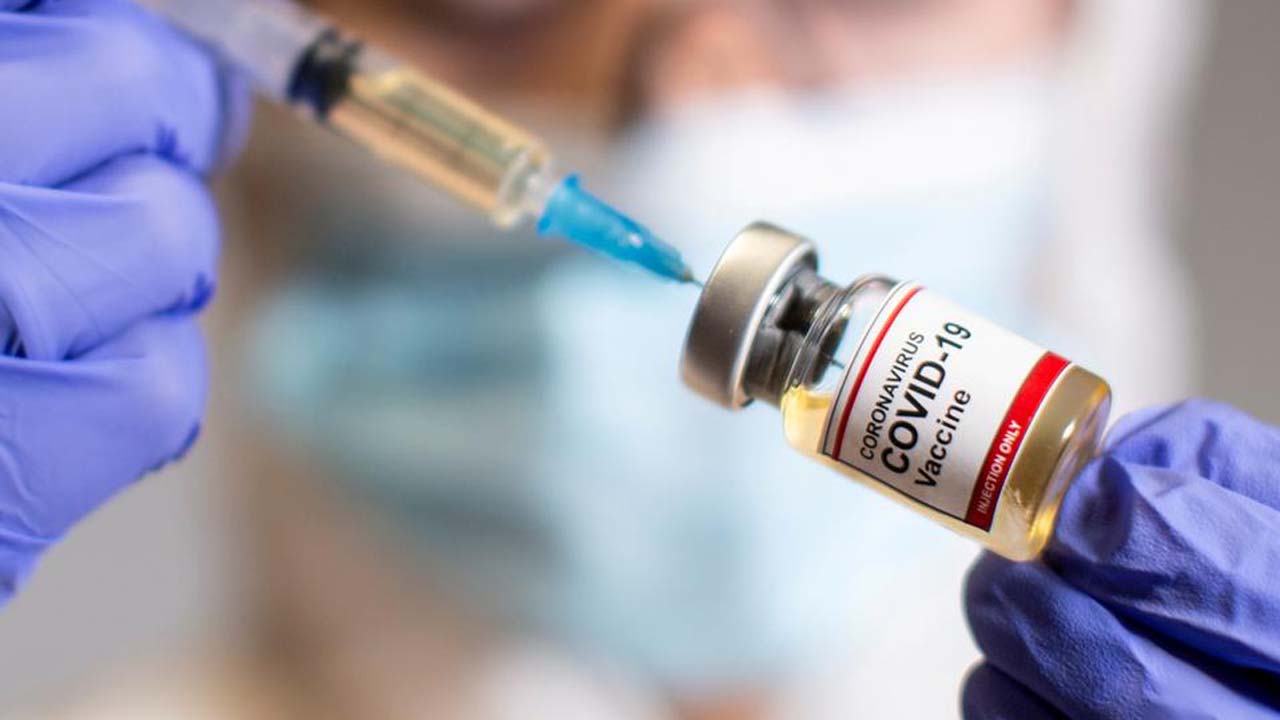Health
COVID-19: WHO says number of reported cases globally continues to decline

The World Health Organisation (WHO) says the number of COVID-19 reported cases, hospitalisations and deaths globally has continued to decline.
Dr Tedros Ghebreyesus, WHO Director-General, said this during an online media conference.
“Three months ago, I declared an end to COVID-19 as a global health emergency, although I said that it remains a global health threat.
“Since then, the number of reported cases, hospitalisations and deaths globally has continued to decline.
“”However, the number of countries reporting data to WHO has also declined significantly,” Ghebreyesus said.
He said that in the past month, only 25 per cent of countries and territories have reported COVID-19 deaths to WHO, and only 11 per cent have reported hospitalisations and ICU admissions.
According to him, this does not mean that other countries don not have deaths or hospitalisations, it means they are not reporting them to WHO.
“There is no question that the risk of severe disease and death is vastly lower than it was a year ago.
“Thanks to increasing population immunity from vaccination, infection or both, and from early diagnosis with better clinical care.
“The virus continues to circulate in all countries, it continues to kill and it continues to change,” he said.
The WHO boss said that the organisation was currently tracking several variants including EG.5, for which they are publishing a risk evaluation on Wednesday.
He said that the risk remained of a more dangerous variant emerging that could cause a sudden increase in cases and deaths.
“When I declared an end to the COVID-19 emergency in May, I announced that I was establishing a review committee to advise me on standing recommendations to support countries to manage COVID-19 in the long-term,” Ghebreyesus said.
He said tcontinueshat standing recommendations for countries in seven major areas was issued on Wednesday
According to him, the recommendations reinforce the advice WHO has provided to countries in its Strategic Preparedness and Response Plan, published in May.
He said the recommendations are first, all countries should update their national COVID-19 programmes using the WHO Strategic Preparedness and Response Plan, to move towards longer term sustained management of COVID-19.
The second, he said that the organisation urged all countries to sustain collaborative surveillance for COVID-19, to detect significant changes in the virus, as well as trends in disease severity and population immunity.
According to him, the third recommendations asked that all countries should report COVID-19 data to WHO or in open sources, especially on death and severe disease, genetic sequences, and data on vaccine effectiveness.
He said the fourth, urged all countries to continue to offer COVID-19 vaccination, especially for the most at-risk groups, who are most likely to be hospitalised or to die.
“Fifth, all countries should continue to initiate, support, and collaborate on research to generate evidence for COVID-19 prevention and control.
“Sixth, all countries should deliver optimal clinical care for COVID-19, including access to proven treatments and measures to protect health workers and caregivers.
“And seventh, all countries should continue to work towards ensuring equitable access to safe, effective and quality-assured vaccines, tests and treatments for COVID-19,” Ghebreyesus said.
According to him, WHO recognises that many people and governments view COVID-19 as a thing of the past.
He said that the recommendations are important because of those who lost someone they love and for those who continue to be at risk of severe disease or death.
According to him, it is also for those who continue to suffer from post-COVID-19 condition for them, COVID-19 is still a daily threat, and a daily trauma.
He said that implementing these recommendations would not only help to protect against COVID-19, it would also help countries to prevent and respond to other diseases.
“We cannot predict the future, but we can prepare for the future,” Ghebreyesus said.
According to him, the review committee is also discussing standing recommendations for mpox, which it will deliver later this week.
“It’s important to emphasise that these recommendations do not interfere with the ongoing negotiations on the new pandemic accord or on amendments to the International Health Regulations,” he said.(NAN)
Health
Group urges Nigerians to embrace healthy habits to prevent diseases

The Society of Lifestyle Medicine of Nigeria (SOLONg) has advised Nigerians to embrace healthy preventive lifestyle habits to prevent the root causes of chronic and lifestyle-related diseases.
The President of SOLONg, Dr Moyosore Makinde, gave the advice in an interview in commemoration of the “Global Lifestyle Medicine Week” on Tuesday in Lagos.
NAN reports that the Global Lifestyle Medicine Week, taking place from May 18 to May 24, 2025, has the theme “Celebrating Healthy Habits: Inspire Change with D.
R.E.A.M.S.”Makinde, also an International Board-certified Lifestyle Medicine Physician, said the week was dedicated to raising awareness about the transformative power of lifestyle medicine in improving health outcomes and reducing the burden of chronic diseases worldwide.
According to her, lifestyle medicine empowers people to live healthier, happier and longer lives.
She explained that the D.R.E.A.M.S. acronym highlighted the six key pillars of lifestyle medicine that guide individuals toward healthier lives namely: Predominantly plant-based Diets, positive Relationships or social connections, Exercise, Avoidance of toxic substances, Mental wellness and stress management, and restorative Sleep.
She said that these pillars had been proven by scientific research to not only manage and prevent chronic diseases like coronary heart disease, diabetes, dementia and Alzheimer’s but also to promote a more sustainable and harmonious relationship with ourselves and with our planet.
Makinde added that it contributed to planetary health and the stability of our ecosystem.
“SOLONg is proud to announce its participation in Global Lifestyle Medicine Week, taking place from May 18 to May 24, 2025.
“Scientific studies, including numerous randomised clinical trials and longitudinal studies, have consistently shown the remarkable benefits of lifestyle interventions in reducing the incidence of chronic conditions.
“Additionally, these healthy habits play a pivotal role in strengthening resilience against infectious diseases.
“The ongoing impact of several pandemics has underscored the importance of adopting healthy behaviours, as poor lifestyle choices have been associated with worse disease severity and slower recovery times,” she said.
Contributing, the General Secretary of SOLONg, Dr Chika Anozie, said that Global Lifestyle Medicine Week aimed to foster a community of like-minded individuals and healthcare professionals committed to lifestyle medicine.
Anozie, also a Family Physician, said that SOLONg would organise various activities to mark the week, including a Webinars and educational workshops on lifestyle medicine topics.
She added that there would be courtesy visits and community outreach programmes promoting healthy habits, as well as social media campaigns sharing lifestyle medicine tips and resources.
“As we observe Global Lifestyle Medicine Week, it is clear that the need for Lifestyle Medicine is greater than ever.
“This is a clarion call for the government to create policies that promote healthy lifestyle practices while restricting behaviours that contribute to disease.
“We urge medical institutions to prioritise the accreditation of Lifestyle Medicine programs at both undergraduate and postgraduate levels.
“It is equally important that health professionals receive the proper training to effectively communicate these life-saving messages to the public.
“The Society encourages individuals to embrace the principles of healthy living, which are not only lifechanging but also long-lasting,” she said.(NAN)
Health
NAFDAC Clarifies Sachet Alcohol Ban Timeline

The National Agency for Food and Drug Administration and Control (NAFDAC) has clarified its stance regarding the nationwide ban on sachet alcohol.
Mr Kenneth Azikiwe, Director of the FCT Directorate of the agency, in an interview on Monday in Abuja that the temporary lifting of the ban was only valid until Dec.
31, 2025.He emphasised that the recent ministerial lifting of the ban was not permanent and urged the public to disregard misinformation suggesting that the government had permanently lifted the restriction.
“There is a ministerial lifting on the ban of sachet alcohol, but it is only temporary and will be reviewed by Dec. 31, 2025.
“After this date, the full enforcement of the ban will commence.
“The minister granted this temporary relief to allow manufacturers and regulators time to collaborate and ensure a more structured and effective implementation of the ban,” Azikiwe stated.”
He highlighted NAFDAC’s ongoing efforts to sensitise the public across the country, noting that awareness campaigns had reached every state.
“We have sensitised distributors, and we’ve emphasised that alcohol should not be sold to individuals under the age of 18, which is also clearly indicated on product labels,” he added.
Azikiwe also commended the Distillers and Beverages Association of Nigeria (DIBAN) for supporting the awareness drive.
He reassured the public that NAFDAC remained fully committed to regulating alcohol consumption and reiterated that sachet alcohol products containing less than 200 milliliters would be phased out after Dec. 2025.(NAN)
Health
Janabi Nominated Regional Director WHO African Region

The World Health Organisation(WHO) says that Prof. Mohamed Janabi has been nominated as the next Regional Director of the World Health Organisation(WHO) African Region.
The organisation said in a statement that the nomination was during a special session of the WHO Regional Committee for Africa held in Geneva ahead of the World Health Assembly on Sunday.
“The special session by member states of the WHO African Region to elect the next Regional Director was agreed upon and organised following the sudden and untimely death of Regional Director-elect, Dr Faustine Ndugulile in November 2024.
“Other candidates were Dr N’da Konan Michel Yao (proposed by Côte d’Ivoire), Dr Mohammed Dramé (proposed by Guinea), and Prof.
Moustafa Mijiyawa (proposed by Togo),” it said.According to it, Janabi’s nomination would be submitted for appointment by the 157th session of the WHO Executive Board, which will take place from May 28 to 29 in Geneva.
It said that the newly appointed Regional Director would take office thereafter for a five-year term and be eligible for reappointment once.
In his acceptance remarks, Janabi expressed commitment to advancing health of the people of the region.
“Thank you for your trust in me. I will not let you down. Your support underscores our collective resolve to build a healthier stronger and more united Africa.
“As we face challenges ranging from infectious diseases, noncommunicable diseases to climate change and limited health financing, we must harness African resilience and unity,” he said.
Dr Tedros Ghebreyesus, WHO’s Director-General, congratulated Janabi on his nomination as Regional Director for Africa and praised the other candidates on their campaigns.
“I offer my warm congratulations to Janabi on his nomination as Regional Director for Africa, and also to the United Republic of Tanzania.
“I also thank Dr Yao, Dr Lamine and Prof. Mijiyawa on their campaigns for this challenging but extremely important position,” Ghebreyesus said.
According to Ghebreyesus, Janabi will take the reins at an unprecedented time for the African Region, and WHO as a whole.
“We are grateful for his experience and expertise as we work together to navigate the challenges we face, and position our organisation to be stronger, sharper and more effective in the future.
” I look forward to his appointment by the Executive Board, and to working with him for a healthier, safer, fairer Africa,” Ghebreyesus said.
He thanked Dr Chikwe Ihekweazu, Acting WHO Regional Director for Africa, for his service in steering the regional office during the transition period following the end of the term of former Regional Director Dr Matshidiso Moeti.
In his remarks, Ihekweazu congratulated Janabi and wished him success as he takes up the new role.
“Congratulations Janabi on your election. This is a true reflection of the trust that member states have placed in you.
“The African region has made important strides in health. But it also faces real and complex challenges.
“You can count on my support and that of all of WHO Africa as you take on this new role to serve our people,” Ihekweazu said.(NAN)

















